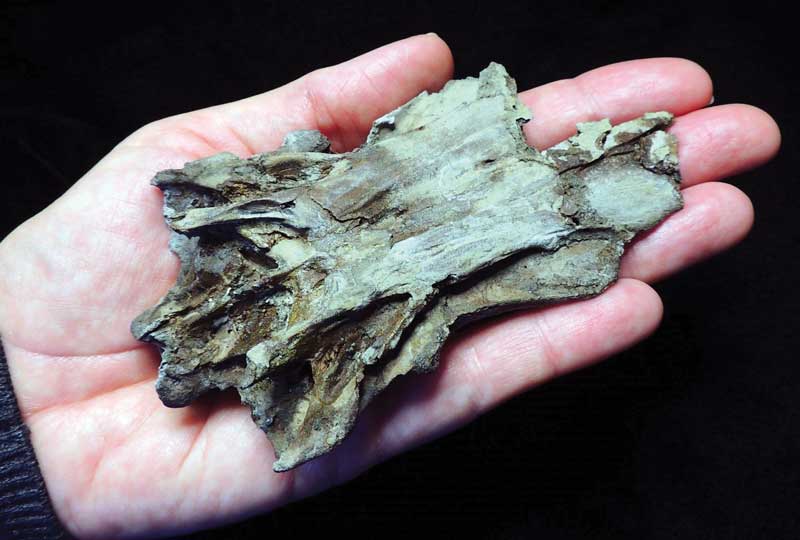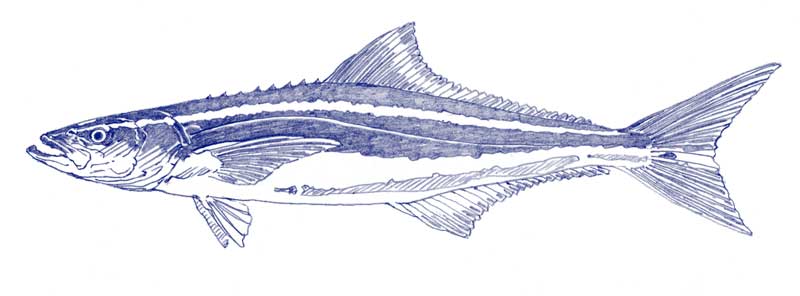On April 27, 2019, local fossil enthusiasts Stephen Groff and Marcus Jones found a partial skull of a fossil fish along Calvert Cliffs. Little did they know at the time that it would turn out to be the find of a lifetime.

This fossil-find consisted of the bony braincase of a cobia—the first ever found in the fossil record. The only known species of living cobia is a marine inhabitant that occurs nearly worldwide in a variety of tropical, subtropical, and warm temperate habitats and occasionally enters estuaries, feeding on crustaceans, cephalopods (squid and their kin), and other fishes. The hand-sized fossilized partial skull was different enough from the living cobia that a new species was named in honor of Groff and Jones and published recently in the Journal of Paleontology.
Calvert Marine Museum curator of paleontology Dr. Stephen Godfrey, along with fossil-fish expert Dr. Giorgio Carnevale of Torino, Italy, named the new species of cobia Rachycentron stremphaencus. In this situation, it seemed most fitting to name it after the co-discoverers. So, the new species name “stremphaencus” is derived from a combination of the letters of “Stephen” and “Marcus” with some rearrangement of the letters to make it mellifluous.

Based on the ecological requirements of the only living species of cobia, and a reconstruction of the environmental conditions that existed when the fossil cobia was alive 10 million years ago, it is reasonable to conclude that Rachycentron stremphaencus was a predatory fish that inhabited the subtropical to warm temperate Atlantic coast of North America during the Late Miocene, where it lived and hunted in shallow marine waters.
Digging in the cliffs is dangerous and is prohibited without a permit on all state and federal lands. On private land, obtain permission from the owners before digging. If you see a skull, bone, or unusual fossil in the cliffs, please report it to the Calvert Marine Museum at (410) 326-2042. The museum appreciates getting this information, and if justified by the importance of the find, will make every effort to obtain the necessary permission and have trained personnel collect the specimen, giving full credit to the finder(s).